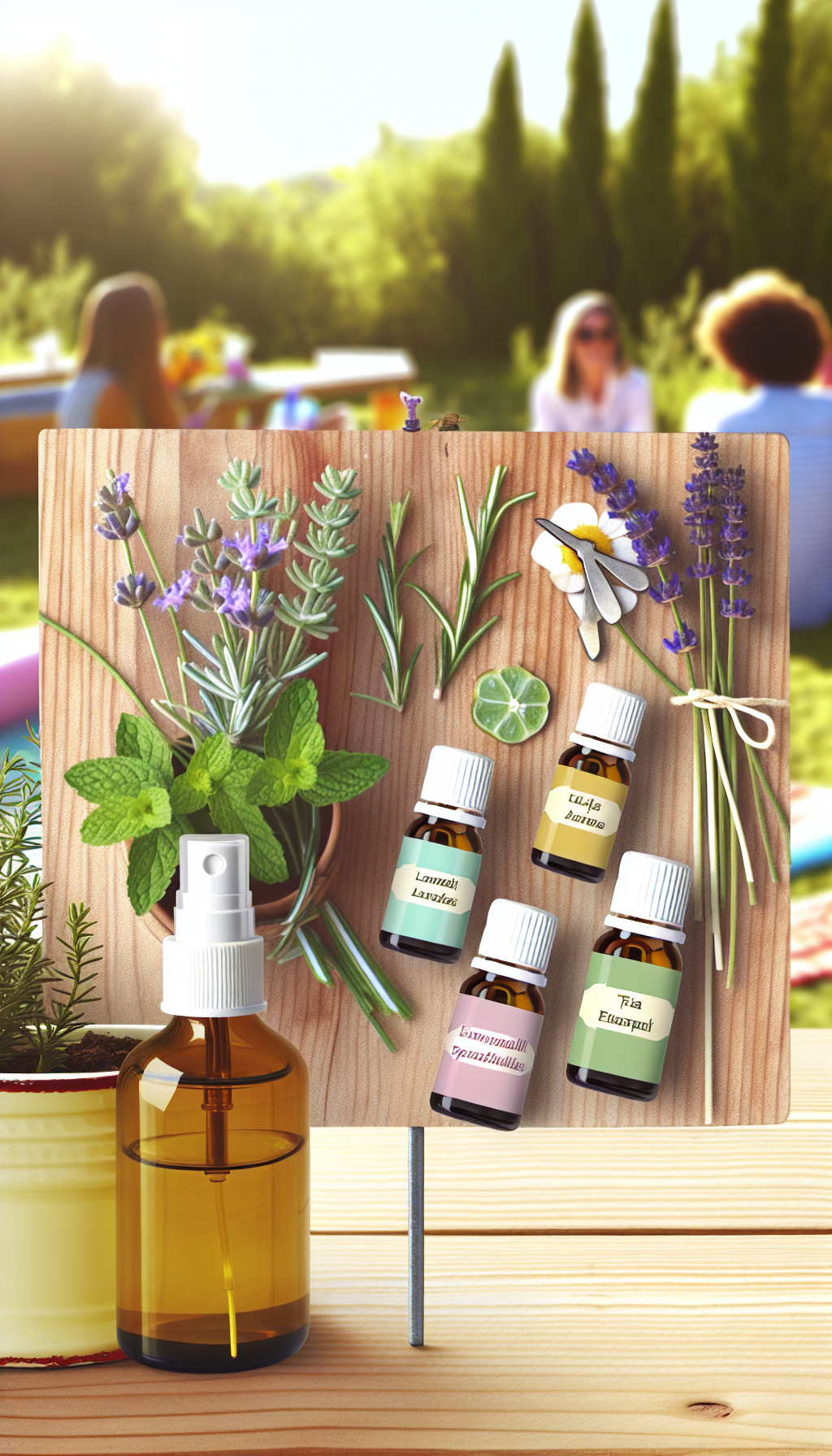
In your quest to keep pesky insects at bay without the use of harsh chemicals, you may be wondering what the best natural insect repellents are. From essential oils like citronella and peppermint to herbs like lavender and basil, there are plenty of options to choose from that can help deter bugs while keeping you and your loved ones safe. Discover the top natural insect repellents that will help you enjoy the great outdoors without worrying about unwanted insect bites.
Introduction
You’re enjoying a beautiful day outside, soaking up the sunshine and fresh air when suddenly, you start getting bitten by pesky insects. It can be a real buzzkill (pun intended). But fear not, there are natural insect repellents that can help keep those bugs at bay while you enjoy the great outdoors. In this article, we’ll explore some of the best natural insect repellents to help you stay bite-free all summer long.
Why Choose Natural Insect Repellents?
Before we dive into the best natural insect repellents, let’s talk about why you should consider using them in the first place. Traditional insect repellents often contain harsh chemicals like DEET, which can be harmful to both your health and the environment. Natural insect repellents, on the other hand, are made from plant-based ingredients that are safer for you, your family, and the planet.
Essential Oils as Natural Insect Repellents
Essential oils have been used for centuries for their healing properties, and they can also be effective natural insect repellents. Oils like citronella, lavender, peppermint, eucalyptus, and tea tree are known for their bug-repelling qualities. You can create your own bug spray by mixing a few drops of essential oils with a carrier oil like coconut or jojoba.
Best Natural Insect Repellents
Now that you know why natural insect repellents are a great choice, let’s take a look at some of the best options available:
Citronella
Citronella is perhaps one of the most well-known natural insect repellents. This oil is derived from the leaves and stems of lemongrass and has a fresh, citrusy scent that bugs find repulsive. Citronella candles are popular for outdoor use, but you can also find citronella essential oil to make your own bug spray.
Lavender
Lavender is not only known for its calming properties, but it also has insect-repellent qualities. This sweet-smelling oil can help keep mosquitoes, flies, and moths at bay. You can use lavender essential oil on its own or mix it with other bug-repelling oils for added effectiveness.
Peppermint
Peppermint oil is another effective natural insect repellent. Its strong scent can deter mosquitoes, ants, and spiders. Plus, peppermint oil has a cooling effect on the skin, making it a great choice for hot summer days. You can dilute peppermint oil with water and create a spray to keep bugs away.
Eucalyptus
Eucalyptus oil is a powerful insect repellent that is particularly effective against mosquitoes. This oil has a strong, fresh aroma that bugs can’t stand. You can mix eucalyptus oil with a carrier oil and apply it directly to your skin, or diffuse the oil in your home to keep insects away.
Tea Tree
Tea tree oil is well-known for its antiseptic properties, but it can also be used as a natural insect repellent. This oil is effective against mosquitoes, ants, and other bugs. You can mix tea tree oil with water and vinegar to create a homemade bug spray that is safe and effective.
How to Use Natural Insect Repellents
Now that you know about some of the best natural insect repellents, let’s talk about how to use them effectively:
-
Apply Directly to Skin: For essential oils like citronella, lavender, peppermint, eucalyptus, and tea tree, you can dilute a few drops in a carrier oil and apply directly to your skin. Make sure to do a patch test first to check for any skin sensitivities.
-
Use a Diffuser: You can also diffuse insect-repellent essential oils in your home to keep bugs at bay. Simply add a few drops of oil to a diffuser and let it run in your living space.
-
Create a Spray: Mix your favorite bug-repelling essential oils with water or a carrier oil in a spray bottle to create your own insect repellent spray. This is a convenient way to apply the repellent to your skin and clothing.
Other Natural Ways to Repel Insects
In addition to essential oils, there are other natural ways to repel insects and avoid bug bites:
Plant-Based Repellents
Certain plants like citronella, lemongrass, basil, and mint naturally repel insects. Planting these in your garden or using them in pots on your patio can help keep bugs away.
Garlic
Believe it or not, garlic can also repel insects. Eating foods with garlic may help make you less attractive to bugs like mosquitoes.
Apple Cider Vinegar
Apple cider vinegar has a strong odor that bugs dislike. You can create a natural bug spray by mixing apple cider vinegar with water and a few drops of essential oil.
Keep Your Yard Clean
Standing water, overripe fruit, and piles of leaves can attract insects. Keeping your yard clean and free of debris can help reduce the insect population in your outdoor space.
Conclusion
There you have it – a comprehensive guide to the best natural insect repellents. Whether you prefer essential oils, plant-based repellents, or other natural methods, there are plenty of options to help you stay bug-free this summer. By choosing natural insect repellents, you can protect yourself and your family without exposing them to harmful chemicals. So, next time you head outside, don’t forget to arm yourself with a natural bug repellent and enjoy a bite-free outdoor experience.
